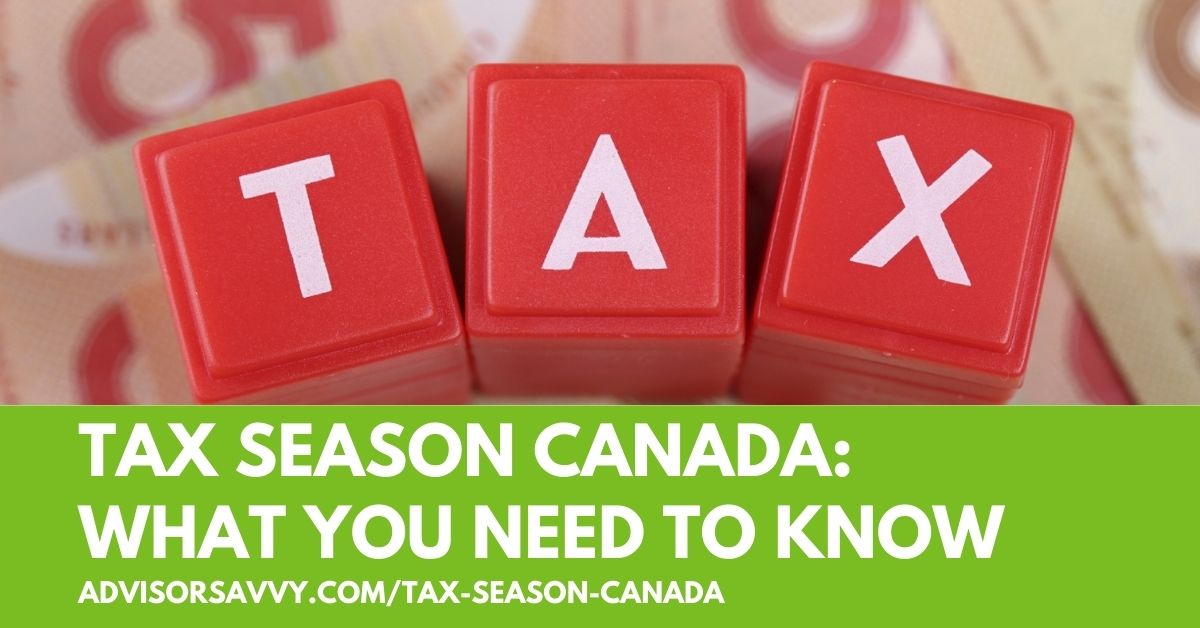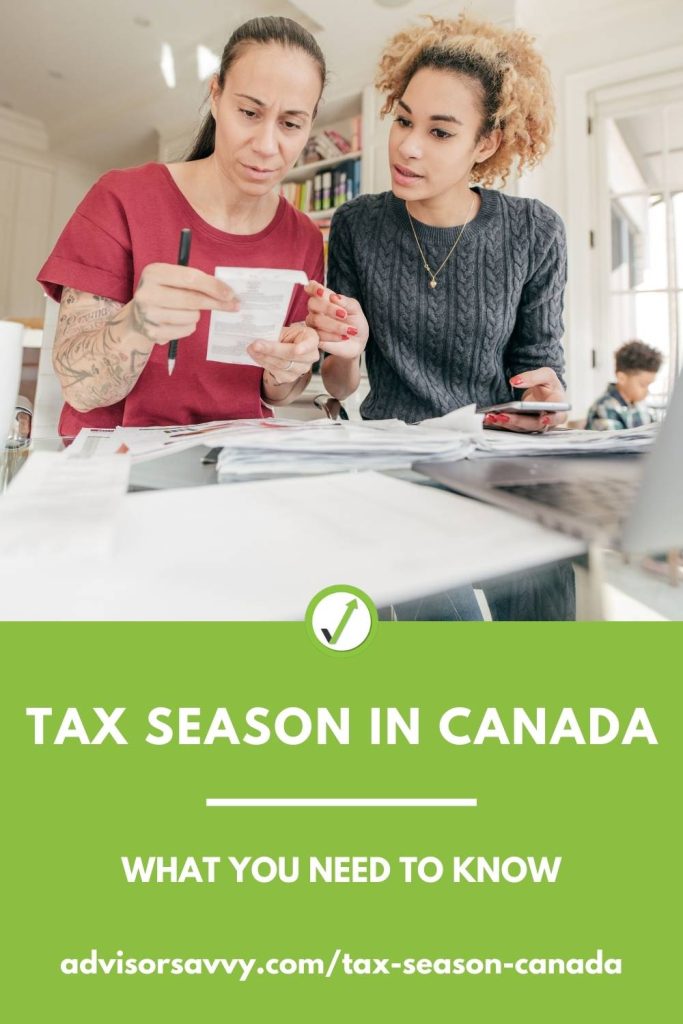
Tax season in Canada: *insert that ‘death and taxes’ saying here*
Whether you drop your folders off with an accountant or a bookkeeper, use a program like Turbo Tax or Ufile to help streamline the process, or grab a pen to fill out a paper copy, it’s always helpful to know the basics of Canadian taxes — especially any changes year over year.
This guide outlines what you need to know concerning deadlines, changes, and even maximizing your return. (And be sure to check out our guides to tax credits and tax rates!)

Table of contents
- Who has to file taxes in Canada?
- What is the deadline for filing taxes in Canada?
- What you should know about filing your taxes
- How to get the most from your tax return
- What are the penalties for filing taxes late in Canada?
- Common missed deductions for taxes in Canada
- What is new for the 2023 tax season in Canada?
Who has to file taxes in Canada?
Most Canadian citizens must file a tax return to the Canada Revenue Agency (CRA). If you owe taxes, are entitled to a refund, and/or if you can claim benefits or credits, you have to file. There are different types of tax returns, each for a specific purpose or entity.
Are you self-employed? You’ll contribute to the Canada Pension Plan (CPP) and Employment Insurance (EI) through filing your taxes.
If you are the executor, administrator, or liquidator of the estate of a person who died in 2022, you may have to file a return for 2022 for them.
The CRA has a full list of reasons for filing.
What are the tax brackets in Canada?
These federal amounts are adjusted each tax year for inflation and other factors.
| 2022 Federal Income Tax Brackets | 2022 Federal Income Tax Rates |
|---|---|
| $48,535 or less | 15% |
| $48,535 up to $97,069 | 20.5% |
| $97,069 up to $150,473 | 26% |
| $150,473 up to $214,368 | 29% |
| More than $214,368 | 33% |
For tax rates of each province and territory, see our tax brackets guide.
What is the deadline for filing taxes in Canada?
Deadlines are an important part of the tax season in Canada. For the 2022 tax season in Canada, the deadline is April 30, 2023. If you or your spouse/common-law partner is self-employed, the deadline for filing is June 15, 2023. For both self-employed people and regular employees, if you have a balance owing, the deadline is April 30, 2023.
When can I file my tax return?
NETFILE opened on May 1, 2023, for personal tax returns. Typically, the CRA opens the service a couple of months ahead of the deadline, giving you plenty of runway to get your return filed.
When can I expect my tax refund in Canada?
Anticipating a refund? You’re probably eager to know how quickly you will get it. Here’s where filing online does have an advantage. If you file online, your Notice of Assessment (NOA) and any tax refund will arrive within two weeks. For paper filers, expect to wait closer to eight weeks for your NOA and refund.
Related Reading: RRSP Contribution Deadline: How to Plan Ahead
What you should know about filing your taxes
The government offers two options for filing your taxes:
Online
NETFILE-certified tax software like TurboTax or Ufile allows you to send your taxes electronically, directly to the CRA. Keep in mind that this option is not available if this is your first time filing taxes in Canada. In addition, other restrictions may prohibit you from using NETFILE. Check to be sure before you begin the process.
By mail
Forms are available to download from the CRA’s website. You can also visit a Canada Post desk for a tax package. Once completed, you’ll mail your return to the government. If you filed a paper return last year, the government automatically mails you an income tax package for this year, typically in mid to late February.
By phone
The CRA offers a free, secure, easy-to-use File My Return service by phone, for those with a lower or fixed income. If you’re eligible, you’ll get a letter inviting you to use the automated service
How to get the most from your tax return
Understanding taxes in Canada can sometimes be tricky. A professional can guide you through your tax return to make sure you take advantage of all benefits and deductions.
However, with the abundance of user-friendly online options available to consumers these days, you may opt to go it alone. Here is what you should know to try to limit what you owe while maximizing your return this tax season.
File on time!
While this may seem obvious, many people are hit by fines for filing their taxes late. File as early as you can — even if you owe. It will limit how much of a hit you take for filing outside of the official tax season deadline.
Did you invest?
Take advantage of TFSAs (Tax-Free Savings Accounts) and RRSPs (Registered Retirement Savings Plans) to reduce the amount of taxable income at tax time. In other words, these are great vehicles for tax savings. Put as much money in them as you can to help shelter your income from taxes, creating a nice nest egg at the same time.
Just keep in mind that both of these vehicles have contribution limits. Going over this limit could result in a penalty, and having to deal with the CRA. Luckily, we’ve outlined both the TFSA and RRSP limits!
Check out your provincial credits
Each province and territory offers a whole slate of different incentives and deductions that you may be able to use at tax time. Make sure you know what deductions are available to you in your province before you file your taxes.
What are the penalties for filing taxes late in Canada?
If you file late, you pay a penalty of 5% of your balance owing. In addition, you’ll be charged compound interest as of May 1. You’ll pay 1% of your balance owing for each full month that your return is late, to a maximum of 12 months.
Related Reading: Tax Credit vs Tax Deduction in Canada
Common missed deductions for taxes in Canada
You want to keep more of your money, right?
Here are five common deductions that are sometimes missed when filing taxes.
Medical expenses
We are fortunate enough to have universal healthcare in Canada. But that doesn’t mean we are free from all medical expenses. As a result, hold on to all of your receipts for out-of-pocket expenses not covered by the government or private insurance. Some of these include prescriptions and dental fees.
Find the CRA’s list of medical expenses you can claim here.
Moving expenses
As mentioned above, you may be able to claim moving expenses. This does, of course, depend on the reason for the move, and the distance. You can claim these expenses if you:
- Moved to work or run a business or moved to study as a full-time student enrolled in a post-secondary program, AND
- Your new home is at least 40 km closer (by the shortest public route) to your new work or school location
Moving expenses details from the CRA
Employment expenses
Depending on your employment situation, you may be able to write off purchases and payments related to your job. For instance, your car or tools you need for work may fall under employment expenses as a tax deduction.
Employment expenses guide from the CRA
Childcare expenses
If you pay for childcare, you are well-versed in the feeling of emptying your account every month. Thankfully, the cost of daycare can be deducted from your taxes.
Childcare expenses guide from the CRA
Interest paid on student loans
It’s surprising how many people don’t realize they can write off the interest they’ve paid on their student loans. But you can and should! Keep in mind that you can only claim an amount for the interest you or a relative paid on the loan in 2022 or the preceding 5 years.
Student loan interest guide from the CRA
What is new for the 2023 tax season in Canada?
Every year, you’ll find a handful of changes or expansions to credits/deductions, as well as the occasional new benefit. Here are some of the changes for your 2022 taxes:
Work-from-home expenses
If you worked from home again this year (as so many of us did), you can again claim related home office deductions. The amount has actually increased from $400 to $500 under the temporary flat rate method if you worked over 50% of the time from home for at least four consecutive weeks due to COVID-19.
Educator School Supply Tax Credit
Teachers and ECEs need plenty of support. This benefit allows them to claim a 25% refundable tax credit for purchases up to $1,000 on eligible teaching supplies bought in 2022. The list of eligible supplies has expanded, too.
Disability Tax Credit
The government has expanded eligibility related to mental functions and life-sustaining therapy. Get the full list of eligibility criteria here.
Canada Workers Benefit
Rates and income thresholds for this benefit that helps low-income workers have changed for 2022. There is a new “secondary earner exemption” as well. Learn more about this benefit here.
Learn about additional changes for the 2023 tax season in Canada here.
Your financial situation is unique, and we can help you find the best advisor for your needs. Just fill out our short questionnaire.
